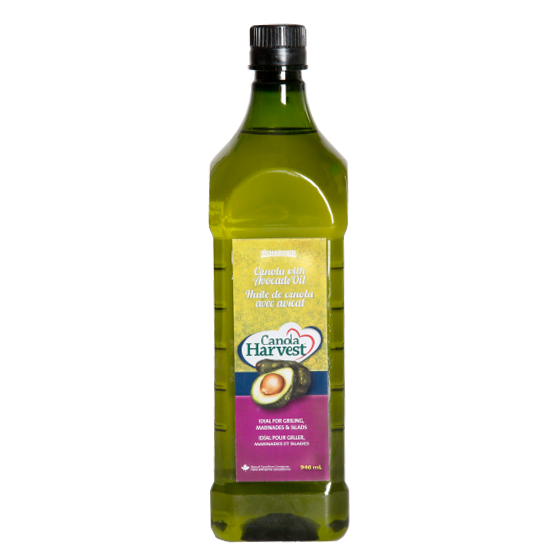In the realm of culinary arts and nutrition, oils play a pivotal role in the flavor profile and health benefits of our dishes. While canola oil has long stood as a staple for cooks due to its versatility and neutral flavor, avocado oil has been garnering attention for its exceptional nutritional qualities and unique taste. This leads to a tantalizing question: can you substitute avocado oil for canola oil? This article delves into this inquiry, exploring the implications of such a substitution and uncovering the nuances of these two oils.
The first step in understanding this substitution is grasping the characteristics of both oils. Canola oil, derived from the seeds of the canola plant, is renowned for its light flavor, making it an excellent canvas for a variety of dishes. It’s often chosen for frying, baking, and salad dressings due to its high smoke point and low saturated fat content. Conversely, avocado oil comes from the fruit of the avocado tree and boasts a rich, buttery flavor. It is particularly celebrated for its health benefits, including high levels of monounsaturated fats, antioxidants, and vitamins.
Now, let’s pivot to the crux of the matter: can avocado oil effectively replace canola oil in your culinary endeavors? The answer is not as straightforward as one might hope. The substitution largely hinges on the intended application of the oil. For instance, if your recipe demands frying at high temperatures, both oils offer commendable smoke points. Canola oil typically has a smoke point of about 400°F, while refined avocado oil can reach up to 520°F. This makes avocado oil a superior choice for high-heat cooking, such as stir-fries or deep frying.
However, if you’re concocting a delicate vinaigrette or a light sauté, both oils can be used interchangeably without any notable detriment to flavor or texture. Avocado oil’s distinct taste may infuse the dish with a subtle richness that can elevate the final product, especially in salads or drizzled over roasted vegetables. Imagine tossing fresh greens with a zesty avocado oil dressing; the creamy notes could transform an everyday dish into something reminiscent of a gourmet experience.
When considering a switch to avocado oil, it’s imperative to reflect on the flavor characteristics of each oil. Canola oil is often lauded for its neutrality, thus seamlessly merging into recipes without overpowering other ingredients. In contrast, the flavor of avocado oil is undeniably pronounced. Its grassy and buttery essence can be enchanting, yet it may not blend as harmoniously in every context. Therefore, if your dish relies on subtle, undetectable oils, using canola might be prudent in preserving the intended flavor balance.
Health implications further complicate the discussion. While both oils present a healthier alternative to saturated fats, avocado oil takes the crown in terms of nutrition. With a higher concentration of monounsaturated fats, it can contribute to heart health and aid in the absorption of fat-soluble vitamins. Additionally, avocado oil is loaded with antioxidants such as lutein, which supports eye health. If health considerations are paramount, the switch to avocado oil could be a savvy decision, offering not just a change in flavor but a boost in nutritional value.
Furthermore, it’s worth discussing dietary compatibility. Avocado oil is a friend to many dietary preferences, including those following paleo or keto diets, due to its high fat content and lack of carbohydrates. Canola oil, on the other hand, although generally considered neutral and appropriate for various diets, may present concerns for those aiming to avoid genetically modified organisms (GMOs), as a significant portion of canola crops are genetically modified. If alignment with dietary principles is a concern, avocado oil provides not only a potential substitute but an ethical alternative as well.
As we navigate the transition from canola oil to avocado oil, it’s also essential to examine the culinary versatility each oil offers. Canola oil excels in baked goods; its lightness often yields soft textures and moist outcomes. If you’re exploring a new recipe for fluffy muffins or a holiday cake, replacing canola oil with avocado oil could result in unexpected textures or flavors that may or may not align with your anticipations. Conversely, utilizing avocado oil in artisanal baking could add an intriguing depth oddly satisfying for every adventurous baker.
In conclusion, considering a substitution of avocado oil for canola oil is an enlightening exploration of taste, health, and culinary tradition. It promises a shift in perspective, encouraging a broader appreciation for the diverse oils available in the kitchen pantry. For high-heat applications, not only is it feasible, but potentially advantageous. Yet for those delicate, nuanced recipes, proceed with caution, as the unique flavor of avocado oil could alter the spirit of your dish. Ultimately, the choice hinges on your culinary intent, health considerations, and a dash of adventurous spirit. So why not experiment? Your palate might just thank you for it!
